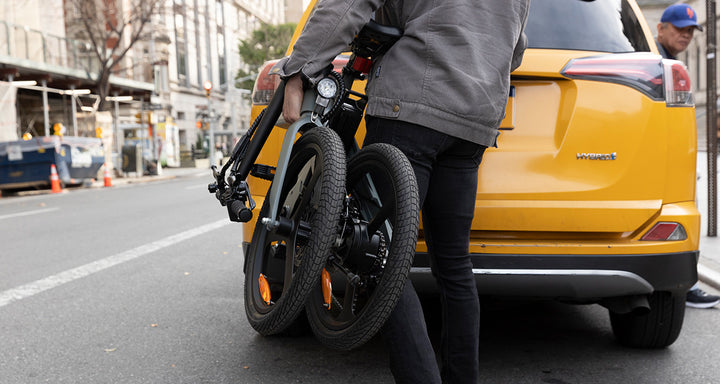Commuting in urban settings can be a challenging and time-consuming task. With traffic congestion, limited parking spaces, and environmental concerns, many city dwellers are seeking alternative modes of transportation. One innovative solution that has gained popularity in recent years is the fold up electric bike. These compact and eco-friendly vehicles offer a range of benefits for urban commuters, revolutionizing the way people travel within cities.

Convenience and Portability
One of the key advantages of fold up electric bikes is their convenience and portability. Unlike traditional bicycles, these electric bikes can be easily folded and carried onto public transportation or stored in small living spaces. This flexibility allows commuters to seamlessly transition between cycling and other modes of transportation, making it easier to navigate urban environments.
Furthermore, the compact nature of fold up electric bikes makes them ideal for multi-modal commuting. For example, riders can cycle to a bus or train station, fold up their bike, and continue their journey on public transportation. This level of convenience is unmatched by traditional bicycles or other forms of urban transportation.
Environmental Sustainability
Another significant benefit of fold up electric bikes is their contribution to environmental sustainability. By choosing electric bikes over gas-powered vehicles, commuters can reduce their carbon footprint and help mitigate the negative impacts of urban air pollution. Additionally, the use of electric bikes promotes a healthier and more active lifestyle, further aligning with sustainable urban living principles.
As cities around the world strive to reduce emissions and promote eco-friendly transportation options, fold up electric bikes offer a practical solution for individuals looking to make a positive impact on the environment. Their energy-efficient design and zero emissions operation make them a compelling choice for environmentally conscious commuters.
Cost-Effectiveness
Commuting in urban settings can be expensive, especially when factoring in the costs of fuel, parking, and maintenance for traditional vehicles. Fold up electric bikes present a cost-effective alternative, allowing commuters to save money on transportation expenses while enjoying the benefits of electric-assisted cycling.
With minimal operating costs and no need for gasoline, fold up electric bikes offer a budget-friendly commuting option for individuals seeking to reduce their transportation expenditures. Furthermore, the long-term savings associated with electric bike ownership make them an attractive investment for urban dwellers looking to optimize their commuting experience.
Health and Wellness
In addition to the practical advantages, fold up electric bikes also promote health and wellness among urban commuters. The electric-assist feature makes cycling more accessible to individuals of varying fitness levels, encouraging more people to engage in physical activity as part of their daily commute.
By incorporating cycling into their daily routines, commuters can enjoy the physical and mental health benefits of regular exercise. This holistic approach to urban commuting aligns with the broader movement towards active transportation and urban well-being, positioning fold up electric bikes as a valuable asset in promoting healthier lifestyles within cities.
In conclusion, the benefits of fold up electric bikes in urban settings are multifaceted, encompassing convenience, environmental sustainability, cost-effectiveness, and health and wellness. As the demand for efficient and eco-friendly commuting solutions continues to grow, these innovative vehicles are poised to revolutionize the way people navigate urban environments, offering a compelling alternative to traditional transportation methods.








